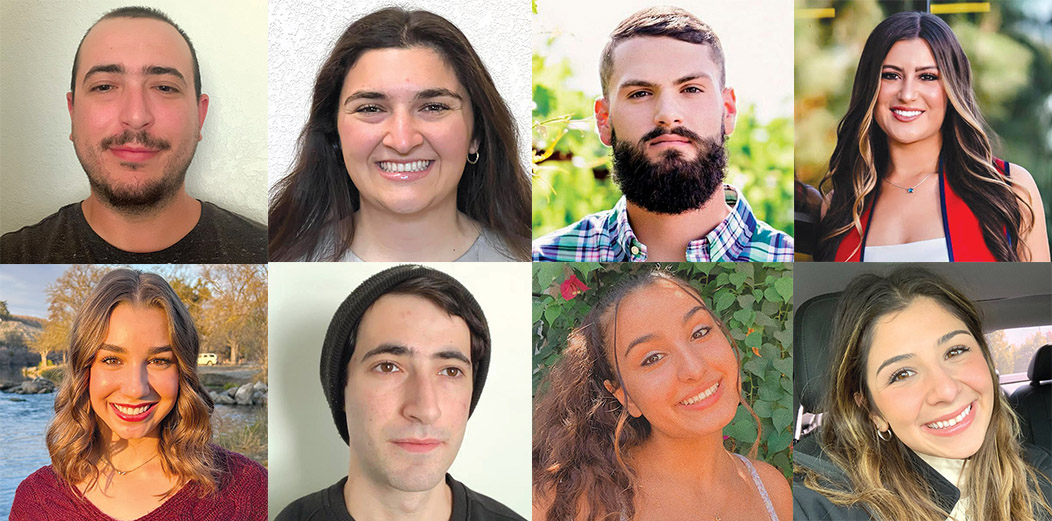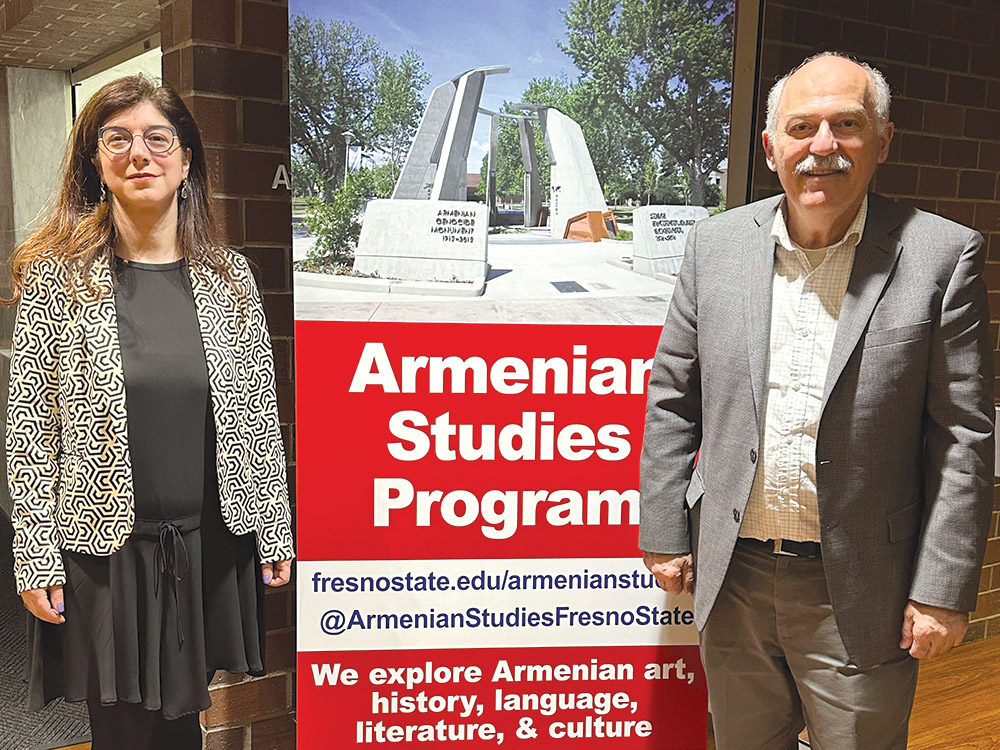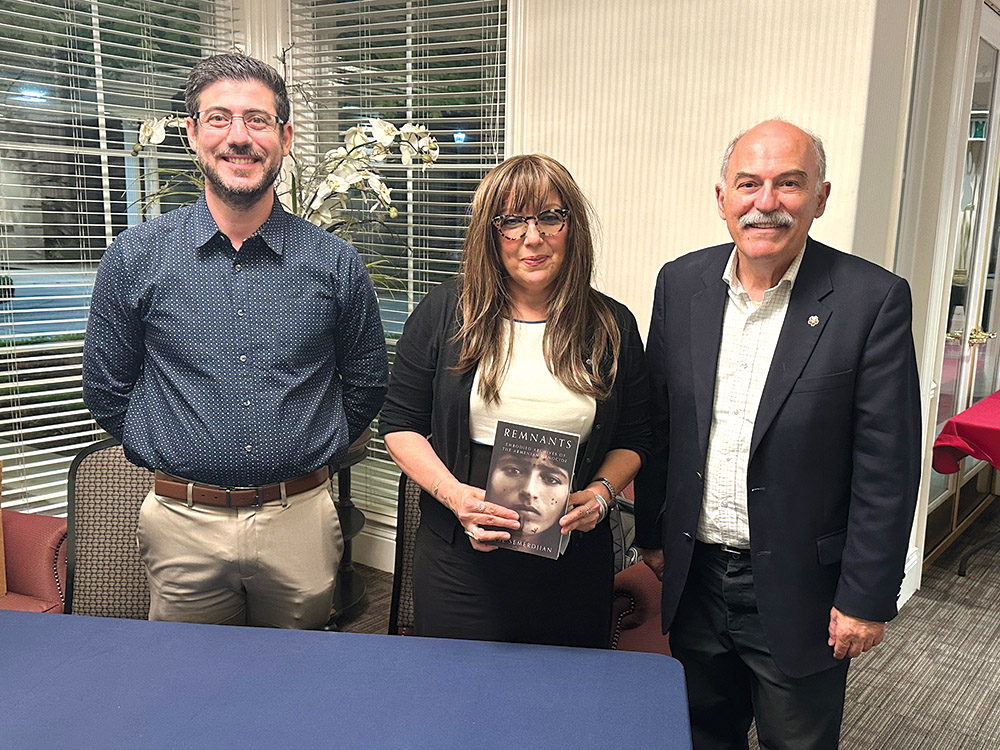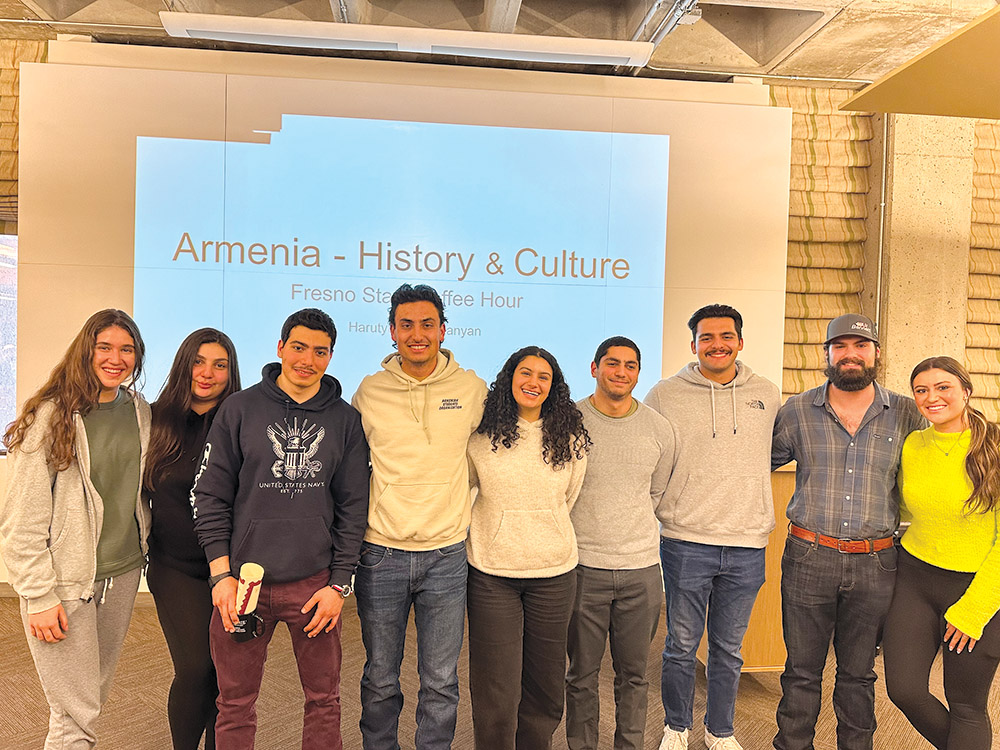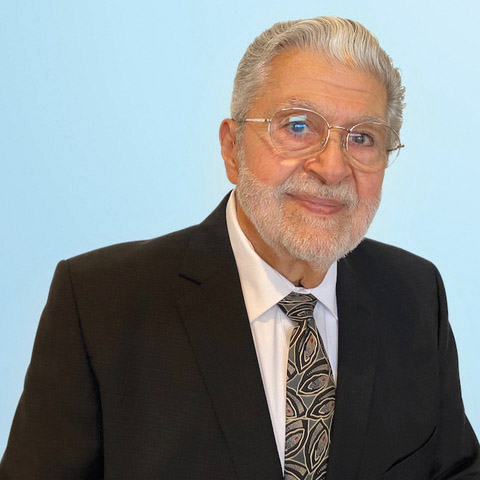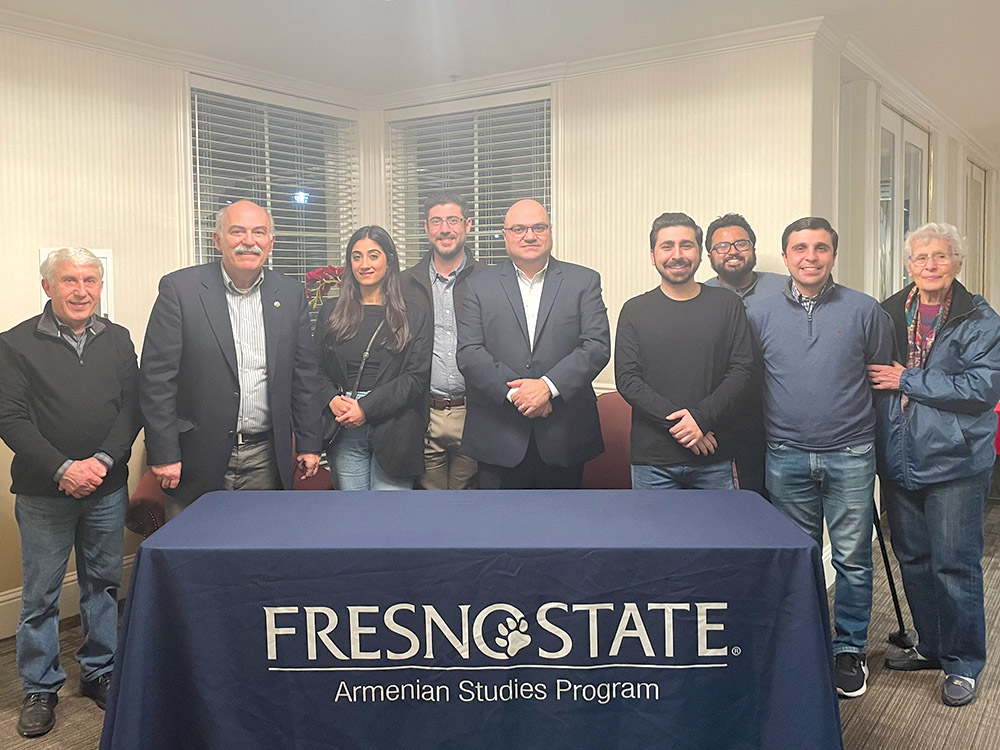Dr. Bedross Der Matossian discussed “Armenian Jerusalem: Past, Present, and Future” on Friday, March, 2024 at the Smittcamp Alumni House on the Fresno State Campus. Dr. Der Matossian is a Professor of Modern Middle East History at the University of Nebraska, Lincoln and was born and raised in the Old City of Jerusalem. His presentation was organized by the Armenian Studies Program and co-sponsored by the Armenian General Benevolent Union Great-er Fresno Chapter.
A native of Jerusalem and a frequent guest lecturer at Fresno State, Dr. Der Matossian discussed the ancient city’s historical ties with Armenia dating back to the fourth century AD and the unique Armenian identity that has been established in Jerusalem over the course of centuries.
Prior to the Armenian Genocide of 1915, the Armenian lay community, Armenians living in the Christian Quarter and the Armenian Quarter of Jerusalem, played a prominent communal role in the city’s development. They became integrated in Ottoman Palestinian society, while maintaining a strong cultural and religious connection to their indigenous Armenian heritage.
Jerusalem Armenians “played a dominant role [in the reconstruction of the House of Cilicia during the Armenian Genocide] by providing shelter and food.” Dr. Der Matossian presented a critical aspect of the Armenian Jerusalem community – their profound connection with the homeland and their position as the oldest Armenian diaspora.
Soon after the Armenian Genocide, British forces seized Jerusalem from the Ottoman Empire. The British Mandate adopted the millet system from the Ottomans, where locals were denied national representation in the governance of their communities and “denied participation in the Patriarchate affairs.” Along with the political divide, social divides had developed amongst the kaghakatsis (indigenous, local Armenians who were “Arabized”) and the zuwwars (refugees who spoke only Turkish and Armenian). Despite these differences, Armenian pride prevailed, and there was an Armenian revival, with the establishment of the St. Tarkmanchats School, sports and cultural clubs, the Gulbenkian Library, real estate developments, and the emergence of Armenian business and shops in the New City.
“The 1948 War marked the end of an important period for Armenians in Palestine,” stated Dr. Der Matossian. West Jerusalem was occupied with by Israeli forces, while the Patriarchate remained under Jordanian rule. Around 3,000 displaced Armenian sought shelter in the Patriarchate, but eventually emigrated to Syria, Lebanon, and Armenia.
Following the 1967 Arab-Israeli war, the Armenian Quarter came under Israeli rule. “Despite the general decline of the Old City under Israeli control, the Armenians continued their businesses and established the Alex and Mary Manoogian Theological Seminary and the Edward and Helen Mardigian Museum,” remarked Dr. Der Matossian.
The First Intifada in 1987, a spontaneous eruption of frustration against Israeli occupation, led to a deteriorating economic situation in the occupied territories. Armenian businesses were especially affected. The election of a new Patriarch, Archbishop Torkom Manoogian in 1990, led to changes in the Armenian community.
The Armenians of Jerusalem are facing a myriad of challenges: the question of citizenship status, business opportunities, lack of adequate housing, educational opportunities, and emigration.
Dr. Der Matossian concluded his presentation by advocating the establishment of an advisory Council for the Patriarchate. “Creating such an Advisory Council represents the most promising path to a new phase for the community,” said Dr. Der Matossian.
“An Advisory Council would consist of members from the Armenian community of Jerusalem, the diaspora, and the Armenian government that would advise the Patriarchate on issues pertaining to political, economic, and social matters.”





